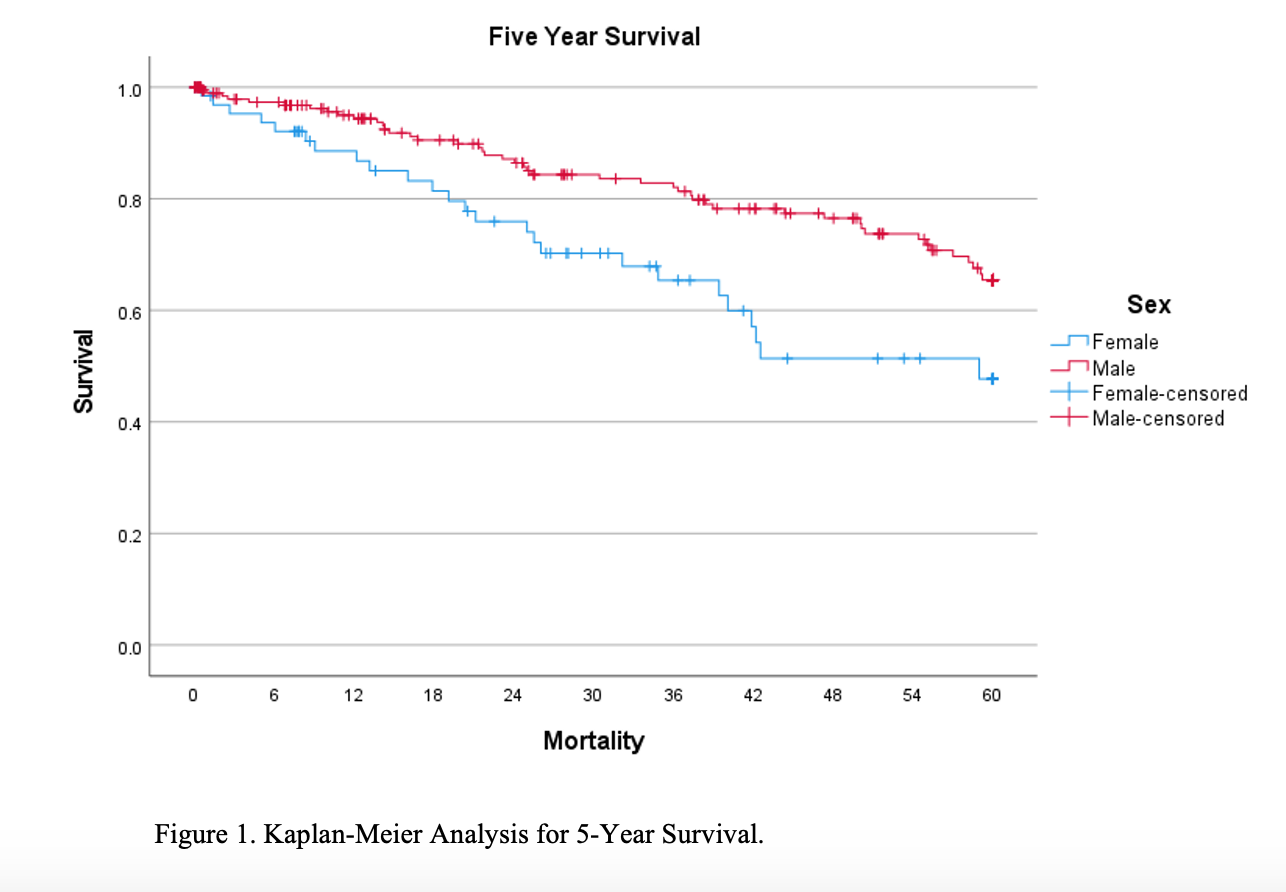Female Sex Predicts Five-year Reintervention And Mortality Following Elective Endovascular Abdominal Aortic Aneurysm Repair
Taylor Corsi, BS, BA, Michael A. Ciaramella, BA, Nadia K. Palte, John P. Carlson, Saum Rahimi, MD, William Beckerman, MD.
Rutgers Robert Wood Johnson Medical School, New Brunswick, NJ, USA.
OBJECTIVES - While sex differences in endovascular abdominal aortic aneurysm repair (EVAR) outcomes are increasingly reported, causes remain ill-defined. We investigated disparities in sex-specific outcomes following elective EVAR at our institution and evaluated factors that may predispose females to increased morbidity and mortality.
METHODS - A retrospective chart review of all patients undergoing elective EVAR between 2011-2020 at a suburban tertiary care center was performed. The primary outcomes were five-year survival and freedom from reintervention. Fisher’s exact test, t-tests, and Kaplan-Meier analysis using the rank-log test investigated associations between sex and outcomes. A multivariate Cox proportional hazard model controlling for age and common comorbidities evaluated the effect of sex on survival and freedom from reintervention.
RESULTS - Two hundred and seventy-three patients underwent elective EVAR during the study period, including 68 (25%) females and 205 (75%) males. Females were older on average than males (76 years vs. 73 years, p=<0.01) and were more likely to have chronic obstructive pulmonary disease (COPD; 38% versus 23%, p=0.01), use home oxygen therapy (9% versus 2%, p=0.04), and require dialysis preoperatively (4% vs. 0%, p=0.02). Distribution of other common vascular comorbidities was similar between sexes. Thirty-day readmission was greater in females than males (18% vs. 8%, p=0.02). Females had significantly lower survival at five years (48% vs. 65%, p<0.01) and significantly lower five-year freedom from reintervention (69% vs. 84%, p=0.02). On multivariate analysis, female sex (hazard ratio [HR]: 1.8, 95% confidence interval [CI]: 1.1 – 2.9), congestive heart failure (HR: 2.2, 95% CI: 1.2 – 3.9) and age (HR: 1.1, 95% CI: 1.0 – 1.1) predicted 5-year mortality. Female sex persisted as the sole statistically significant predictor of five-year reintervention (HR: 2.4, 95% CI: 1.1-4.9).
CONCLUSIONS - Female sex persisted as an independent predictor of decreased five-year survival and increased five-year reintervention following elective EVAR. Data from our institution suggests sex-specific factors such as vessel anatomy and device-specific suitability rather than patient age and baseline health risk may contribute to greater surgical morbidity and mortality for females following elective EVAR. 
Back to 2022 Abstracts
